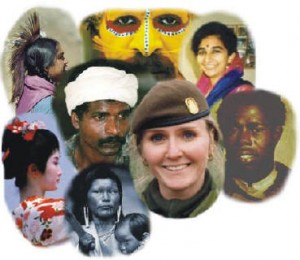 Is it okay for a person who is non-Japanese American to write about the Japanese American (JA) experience? My immediate reaction is no. I’m sick of other people writing my history and stories. I’m sick of having my culture hijacked, even by those who have the best of intentions.
Is it okay for a person who is non-Japanese American to write about the Japanese American (JA) experience? My immediate reaction is no. I’m sick of other people writing my history and stories. I’m sick of having my culture hijacked, even by those who have the best of intentions.
Can a person who is non-Japanese American capture what it is like to be Japanese American in a true and authentic way? My immediate reaction again is no. They can try to put themselves in my shoes but ultimately they could never fully know what it means to be JA.
So when I see films and books written by non-Japanese Americans about Japanese Americans a part of me always cringes and the story suddenly becomes inauthentic. Actually, it pisses me off. Someone else is trying to tell me my own story. And worse yet, they are trying to pimp it out to the rest of the world.
Being a JA writer, I should be the one telling the JA story. I should be the one that interprets to the rest of the world what it is like being Japanese American. What it looks like. What it tastes like. What it smells like. Since who knows how it feels better than me?
Does that mean then that a writer who is Japanese American can’t write story about non-Japanese American people? To be consistent the answer should be no. A JA person has no idea what it feels like to be anything other than JA.
So I can only write about my own experiences that I see through my own eyes. And when I write beyond my knowledge, I run the risk of being criticized (by people like myself) for trying to be something I can never truly comprehend.
This means that I’m stuck writing about Japanese Americans for the rest of my life. It means that I can’t write about any other groups of people. That depresses me. It’s not that I don’t want to write about JAs, I do. I just don’t want to be limited to writing one story.
But how do I write about other people and do it in a way that doesn’t feel like I’m stealing their culture and repackaging it? Because I know how it feels when non-Japanese Americans do that to Japanese Americans, I’m super sensitive about it. I’m so sensitive that sometimes I end up not being able to write anything at all.
Once I was told by a director I was working with that before we met in person he thought that I was Kenyan. He said I captured the African American immigrant voice so well he assumed one of my parents had emigrated from Africa. That made me think. What do I know about being black?
Cornell West. Maya Angelou. Clarence Thomas. Angela Davis. Barrack Obama. Billie Holliday. Martin Luther King Jr. Sojourner Truth. Malcolm X. Rosa Parks. Booker T. Washington. Alice Walker. Collin Powell. Oprah. Tupac Shakur.
In other words, I don’t know anything. What business then do I have writing about African Americans? What about Chicanos? Native Americans? Gay and lesbians? Southerners? New Yorkers?
I don’t. But I get around this by trying to focus on themes that run across racial, ethnic, social economic and geographical lines. Things I know like love, anger, loss and sadness. Things that everyone feels. Things that make us human.
What’s important then is not necessarily who is doing the writing but the quality of the piece itself. Is it interesting? Is it well written? Does it resonate? And most importantly, is it honest? So just because I’m Japanese American doesn’t mean I have a better handle on the JA story or that I can’t write outside the JA experience. The most important thing is to make sure that what I write is truthful to the people I’m writing about (Japanese American or otherwise).
With all of that being said, I do think it is important to make sure people have the opportunity (and power) to tell their own stories. That’s why race/ethnic specific film festivals, entertainment organizations and groups are crucial now and for the conceivable future.








